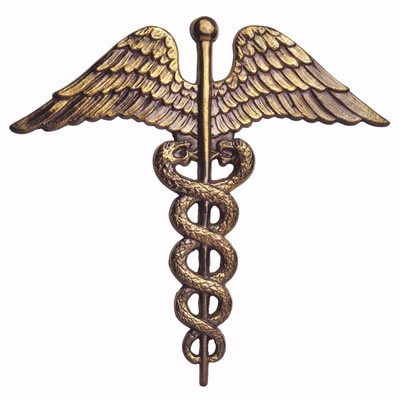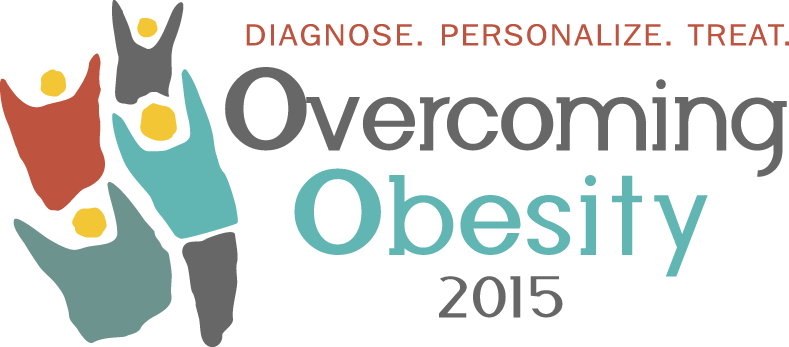Featured Products:
ABOM Exam Study Materials
Review Course
* Live course takes place in Washington, D.C. Sept. 30- Oct. 4 | Register online Textbooks * Obesity: Evaluation and Treatment Essentials | Order online
* Practical Manual of Clinical Obesity | Order online
* Handbook of Obesity Two-volume Set | Order online
|
|
|
|
Obesity Medicine e-Weekly
|
News
 Record number of physicians apply to take ABOM exam This year, a record-breaking 542 physicians applied to take the American Board of Obesity Medicine (ABOM) certification exam. This represents a 27 percent increase from the amount of physicians who applied to take the exam last year and demonstrates the growing interest among physicians in obesity medicine. This year's applicants come from a range of backgrounds, including internal medicine, family medicine, endocrinology, pediatrics, and OB/GYN. Those who applied to take the exam this year are encouraged to start studying early -- the Review Course at Overcoming Obesity 2015 takes place at the end of this month. Not only is this course an excellent study resource taught entirely by Diplomates of ABOM, but it also provides attendees an invaluable opportunity to meet physicians who have already passed the exam.
 September is childhood obesity awareness month
Help raise awareness about childhood obesity during National Childhood Obesity Awareness Month. One in three children is affected by overweight or obesity, and more children are at risk for obesity-related diseases, such as hypertension, type 2 diabetes, and cardiovascular disease. Spread the word about childhood obesity prevention in your newsletter or on social media, and share tips with your patients about maintaining a healthy family lifestyle.
|
Advocacy
 Sign up for advocacy track by Sept. 16 Sign up for advocacy track by Sept. 16
At our upcoming conference, Overcoming Obesity 2015 in Washington, D.C., we're offering a new advocacy breakout track. This track will teach you the skills needed for lobbying on Capitol Hill; then, you'll have the opportunity to use your skills by actively lobbying for increased access to and coverage of obesity treatment services.
The Advocacy Breakout Track will take place on Friday, Oct. 2, as part of the Fall Obesity Summit. This track is offered exclusively to members who are registered to attend the Fall Obesity Summit, but space is limited to 24 attendees. Those who attend will earn CME credit for participating and will have an invaluable opportunity to get involved in advocacy. Reserve your spot by submitting your signed agreement to cme@asbp.org. Registration for this track closes on Sept. 16.
 CMS posts state EHB benchmark plans for 2017 CMS posts state EHB benchmark plans for 2017 Last month, the Centers for Medicare and Medicaid Services (CMS) posted information about the essential health benefits (EHB) benchmark plans for each of the 50 states and the District of Columbia for 2017. This information includes a summary of the plan's coverage of certain benefits that appear in the plans and benefits template, including a list of covered prescription drug categories and classes, as well as supporting plan documents that provide details about all plan coverage, limits, and exclusions. View the proposed 2017 EHB benchmark plans for the 50 states and D.C.
CMS will accept public comments until 11:59 p.m. ET on Sept. 30, 2015, via FFEcomments@cms.hhs.gov with the state clearly identified in the subject line (e.g., "Maryland 2017 Benchmark Plan Comments"). The Department of Health and Human Services (HHS) will review all comments and then post the list of final 2017 EHB benchmark plans.
The Obesity Care Continuum (OCC) will submit formal comments regarding the 2017 benchmark plans. Look for an update about the OCC comments in an upcoming edition of Obesity Medicine e-Weekly.
|
Foundation
 The foundation needs your help collecting silent auction items The foundation needs your help collecting silent auction items
Support the Obesity Treatment Foundation this fall by donating a silent auction item. The foundation is currently collecting items to be bid upon during the cocktail party and silent auction fundraiser taking place on Oct. 3 at Overcoming Obesity 2015. Popular items include vacation or trip packages, creative artwork, dining experiences, music or sports memorabilia, vacation rentals, and outings for children, family, and adults. To donate, complete a silent auction donation form and return it to stacy@asbp.org by Sept. 15.
|
Resources
 The Obesity Treatment Foundation (OTF) helps keep you up to date on current obesity research! Each week, OTF publishes a brief overview of three recent studies so you can be in the know, even during your busiest days. Click the titles below to view the full articles, and please consider supporting OTF so we can continue to provide you with updates on the latest research. The Obesity Treatment Foundation (OTF) helps keep you up to date on current obesity research! Each week, OTF publishes a brief overview of three recent studies so you can be in the know, even during your busiest days. Click the titles below to view the full articles, and please consider supporting OTF so we can continue to provide you with updates on the latest research.
Hopkins, J., et al. Lancet, 2015.
Bariatric surgery outcomes focus largely on adverse events and resolution of comorbidities, which differs from the perspectives of other health care professionals. A study was conducted to summarize outcomes reporting in bariatric surgery in order to develop a core outcome set and to compare outcomes selected as important by type of health care professional. The study found that reporting of bariatric surgery outcomes is inconsistent and ill-defined. Substantial variation exists between the views of surgeons and those of other health professionals, including the importance of measuring body weight. This preliminary report will be used to produce a core outcome set for the benefits and adverse events in BARIAtric surgery Clinical Trials (BARIACT) as a solution to this problem.
Scott, E. M. Diabetes, Obesity and Metabolism, 2015.
Physiological processes are synchronized with the external environment through molecular clocks. These circadian clocks are governed by the continuous 24-hour cycle of light and dark and are involved in physiological processes crucial to well-being. Disruptions to circadian rhythms, such as disrupted sleep schedule, may alter the functions of cells and tissues, leading to the development of insulin resistance, cardiovascular disease, and obesity. This review article outlines how genetic and environmental factors influence the circadian clock and affect cardiometabolic function and disease.
Novel links between troubled marriages and appetite regulation: Marital distress, ghrelin, and diet quality
Jaremka, L. M., et al. Clinical Psychological Science, 2015.
A study was conducted to evaluate the effects of marital distress on leptin and ghrelin levels, as a possible mechanism to connect marital distress to body mass index. The study used a meal test to assess changes in ghrelin and leptin in both members of a couple. Results showed that people in more distressed marriages had higher ghrelin following the meal and poorer overall diet quality than those in less distressed marriages. Leptin was not different in the study. The results suggest that the appetite hormone ghrelin may link marital distress to corresponding negative health effects, such as weight gain.
|
Education

Full Conference - Sept. 30-Oct. 4, 30 CMEIncludes both the Obesity Medicine Certification Review Course and Fall Obesity Summit. Obesity Medicine Certification Review Course for the ABOM Exam - Sept. 30-Oct. 1, 13 CME Prepares physicians for the American Board of Obesity Medicine (ABOM) certification exam. Research Basics Workshop - Oct. 1, 4.25 CME Introduces the basics of conducting clinical research studies. Fall Obesity Summit - Oct. 2-4, 17 CMEAddresses a wide range of topics related to the clinical treatment of obesity.  Featured topics at Overcoming Obesity 2015 Featured topics at Overcoming Obesity 2015 Anti-obesity Medications: Pharmacotherapy is one of many approaches used in a patient's personalized obesity treatment plan. With a number of FDA-approved medications on the market, it's important to know when to prescribe an anti-obesity medication and to understand which medication(s) may be appropriate for your patient. At the conference, we're offering multiple lectures that will enhance your knowledge about anti-obesity medications. Genetics and Metabolism: A patient's genetic makeup plays a role in the risk for obesity and his or her response to obesity treatment. A number of lectures at the conference will focus on genetic and metabolic interactions to help you better understand how your patient's unique makeup may affect their individualized treatment.
|
|
|
|
|